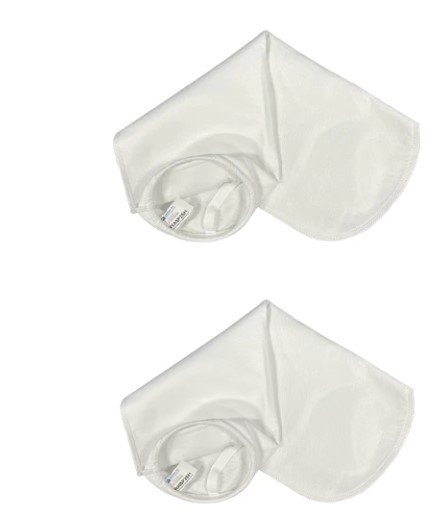Introduction
Polypropylene felt bags have become increasingly popular due to their durability, versatility, and efficiency in various applications. Whether you’re in manufacturing, filtration, or simply looking for a reliable storage solution, polypropylene felt bags offer a wide range of benefits. In this comprehensive guide, we’ll explore everything you need to know about choosing the right polypropylene felt bags for your needs.

What is Polypropylene Felt?
Polypropylene felt is a synthetic material made from thermoplastic polymer fibers. It is known for its strength, chemical resistance, and excellent filtration properties. Polypropylene felt is commonly used in industrial applications, including filtration, liquid clarification, and dust collection, due to its ability to capture fine particles while maintaining high flow rates.
Benefits of Polypropylene Felt Bags
- Durability: Polypropylene felt bags are highly durable and resistant to abrasion, tearing, and chemical degradation, making them suitable for demanding industrial environments.
- Efficient Filtration: The dense fibers of polypropylene felt effectively capture particles of various sizes, from fine dust to larger contaminants, ensuring efficient filtration and clean liquids.
- High Flow Rates: Despite their excellent filtration capabilities, polypropylene felt bags maintain high flow rates, minimizing pressure drop and optimizing system performance.
- Chemical Resistance: Polypropylene felt is resistant to a wide range of chemicals, acids, and alkalis, making it suitable for use in corrosive environments.
- Versatility: Polypropylene felt bags are available in various sizes, micron ratings, and configurations to suit different filtration requirements, making them versatile for a wide range of applications.
Factors to Consider When Choosing Polypropylene Felt Bags
- Micron Rating: The micron rating of a polypropylene felt bag determines the size of particles it can effectively capture. Consider the particle size you need to filter and choose a bag with an appropriate micron rating.
- Size and Configuration: Select a polypropylene felt bag that fits the dimensions of your filter housing and matches your flow rate requirements. Bags are available in different sizes and configurations, including standard, high-efficiency, and high-capacity options.
- Compatibility: Ensure the polypropylene felt bag is compatible with the liquids or gases you are filtering, taking into account factors such as temperature, pH, and chemical composition.
- Sealing Method: Polypropylene felt bags are typically sealed using a variety of methods, including sewn, welded, or heat-sealed seams. Choose a sealing method that provides a secure closure and prevents bypassing of contaminants.
- Bag Construction: Consider the construction of the polypropylene felt bag, including the thickness of the felt material, the number of layers, and the design of the bag to ensure it meets your durability and filtration efficiency requirements.
Applications of Polypropylene Felt Bags
- Liquid Filtration: Polypropylene felt bags are commonly used for liquid filtration in industries such as food and beverage, pharmaceuticals, chemicals, and water treatment. They effectively remove contaminants such as sediment, particulates, and oils from liquids.
- Dust Collection: In dust collection systems, polypropylene felt bags capture airborne dust and particulates, ensuring clean air exhaust and maintaining a safe and healthy work environment.
- Oil Filtration: Polypropylene felt bags are used in oil filtration applications to remove impurities and contaminants from lubricating oils, hydraulic fluids, and process oils, prolonging equipment life and maintaining fluid cleanliness.
- Process Filtration: Polypropylene felt bags are employed in various industrial processes, including paint and coating applications, wastewater treatment, and chemical processing, where efficient filtration is essential for product quality and process efficiency.

Conclusion
Polypropylene felt bags are versatile, durable, and efficient filtration solutions suitable for a wide range of industrial applications. By considering factors such as micron rating, size, configuration, compatibility, and construction, you can choose the right polypropylene felt bags to meet your specific filtration needs. Whether you’re filtering liquids, capturing dust, or clarifying oils, polypropylene felt bags offer reliable performance and ensure clean and safe operations in your facility.











